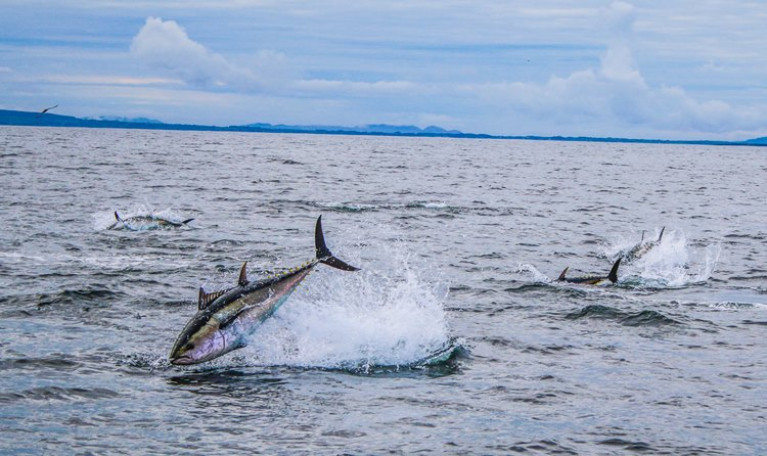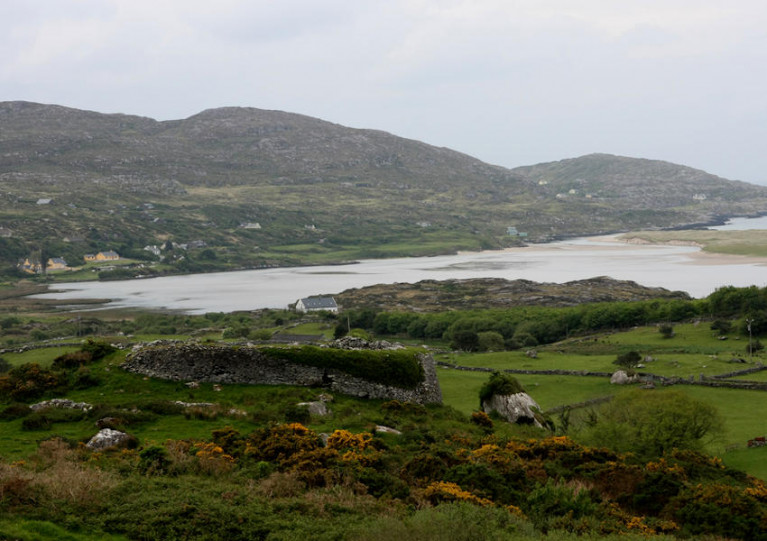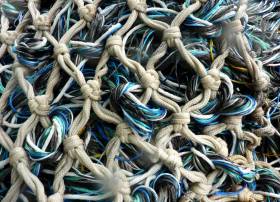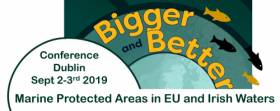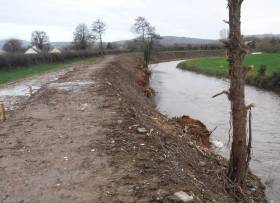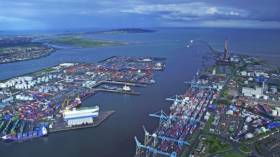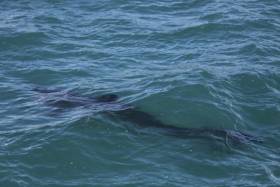Displaying items by tag: Irish Wildlife Trust
Irish Wildlife Trust Questions Why MEPs Did Not Support Ban on Bottom Trawling in Marine Protected Areas
The Irish Wildlife Trust has welcomed a European Parliament report calling for action on bottom trawling but has questioned why most MEPs did not support a ban on the fishing technique in marine protected areas (MPAs).
A report by Portuguese socialist MEP Isabel Carvalhais entitled “Towards a sustainable blue economy in the EU” was adopted by MEPs this week.
The IWT has queried why the original text of the report calling for a ban on bottom trawling in all MPAs was not adopted, even though it had previously been supported in the European Parliament’s Fisheries Committee.
“Instead, the majority of MEPs, including Irish Fine Gael and Sinn Féin representatives, voted to dilute the text and only restrict bottom trawling in so-called “strictly protected” areas, which cover only 1% of EU waters,” the IWT noted.
Another amendment calling for the EU to prohibit all environmentally damaging extractive industrial activities like mining and fossil fuel extraction in MPAs was adopted by all Irish MEPs.
The IWT said it believed bottom trawling “falls within the category of ‘environmentally damaging extractive industrial activities”. It noted that the International Union for the Conservation of Nature defines “industrial fishing” as all fishing using trawling gear that is dragged or towed across the seafloor or through the water column, and fishing using purse seines and large longlines.
Shadow rapporteur for the Greens/EFA group Grace O'Sullivan said the report “marks a serious step forward for the Fisheries Committee, which is a traditionally tough place to get environment protection legislation passed”.
“Our group achieved some key wins in terms of language on bottom-trawling, mapping carbon-rich marine habitats, and a ban on extractive activities in MPAs,” she said.
“However I am dismayed that a majority of MEPs are still unwilling to effectively protect MPAs,” O’Sullivan continued.
“In many MPAs in northern Europe, bottom-trawling is actually more intense than elsewhere. This is a complete contradiction in terms. Together with civil society, our work continues now, as member states must meet commitments under the Biodiversity Strategy and as the Commission prepares its ‘Action Plan to conserve fisheries resources and protect marine ecosystems", she said
The European Parliament also voted to map and restore carbon-rich marine habitats, protecting them from activities that can disturb and release carbon stored in the seabed, like bottom trawling.
IWT marine policy and research officer Regina Classen welcomed this amendment as “particularly welcome and timely as Ireland plans to increase its MPA coverage to 30% by 2030”.
A wildlife charity has urged the public to take care when disposing of face masks after it’s alleged a puffin became entangled in a mask and died.
According to The Irish Times, the Irish Wildlife Trust (IWT) said it was sent the distressing image it shared on its Instagram, showing the seabird with a disposable face mask wrapped around its face and underneath a wing.
Birdwatch Ireland says it has also received reports of birds caught in recklessly discarded masks, though it is not clear how widespread the problem may be.
But the IWT says that even a small number of cases adds to “the issue of marine litter and plastic waste that we know presents serious issues for wildlife”.
The Irish Times has more on the story HERE.
Budget 2021 ‘Has Focus On Biodiversity Like Never Seen Before’
The Irish Wildlife Trust has welcomed this week’s Budget announcements of new funding to address biodiversity issues.
These include a move to more than double the allocation to the previously “defunded and neglected” National Parks and Wildlife Service (NPWS) from €13 million to €29 million.
“It is vital that this extra money is spent on actual conservation measures and not diverted to tourism infrastructure in national parks and nature reserves, which we have seen before,” the trust said.
According to the trust’s campaigns officer Pádraic Fogarty, there has been “a focus on biodiversity in this year’s Budget which we have never seen before”.
He added: “This can only help in bringing an end to the relentless downwards trajectory which we have witnessed in biodiversity in Ireland.
“We expect this will be the start of a longer-term recovery that includes the vital review of the NPWS, a new forestry programme, the ending of overfishing and the creation of marine protected areas as well as an agri-food strategy that is fit to deal with the climate and biodiversity crises.
“All of these have been promised by the new Government and are all essential in delivering the system-wide changes needed.”
A new report from the Irish Wildlife Trust says some of this country’s protected marine zones are suffering from “serious deterioration, and in some cases outright destruction”.
And according to The Irish Times, the situation is grave enough for the trust to lodge a complaint with the European Union over “blatant” violations of the EU Habitats Directive.
The report highlights four Special Areas of Conservation, in West Cork, Kerry, Mayo and Donegal, where “the destruction of incredibly rare reefs and significant declines in carbon-sequestering seagrass meadows” is especially severe.
Moreover, the report cites data from the National Parks and Wildlife Service which says nearly half of all marine wildlife and plantlufe habitats it has surveyed in recent years are in decline, with a whopping 85% described as inadequate.
The Irish Times has more on the story HERE.
Protest At Leinster House Highlights Concerns Over Future Of Ireland’s Commercial Fishing
Campaigners assembled at the gates of Leinster House yesterday to call for an end to overfishing in Ireland’s waters.
As RTÉ News reports, the Extinction Rebellion movement teamed up with the Irish Wildlife Trust for the demonstration, which featured two protesters in mermaid costume reading out a list of fish stocks that have been depleted in the waters around our coasts.
The campaign argues that Marine Minister Michael Creed has failed to take action to ensure sustainable fishing here — which will lead to dramatic cuts in quotas for the Irish fishing fleet, they say.
Minister Creed heads to Brussels next Monday (16 December) for the EU Agriculture and Fisheries Council, which will decided quotas for the next year.
Trinity Conference To Discuss Ireland’s ‘Poor Performance’ On Marine Protected Areas
The global climate crisis and how it relates to biodiversity and ocean protection is a big topic for discussion at a two-day conference in Trinity College Dublin which starts tomorrow (Monday 2 September).
The ‘Bigger and Better’ Marine Protected Area Conference is co-hosted by Coastwatch Ireland and the Irish Wildlife Trust (IWT), who highlight that Ireland has protected only a fraction of its waters as pledged by 2020.
It will bring together Government officials with international speakers and experts to explore the reasons for Ireland’s “poor performance” when it comes to protecting our seas.
“Ireland is a laggard in providing the protections required to restore our ocean’s health,” said IWT campaign officer Pádraic Fogarty.
“MPAs [Marine Protected Areas] are now widely applied across the world as a tool in protecting biodiversity and ocean ecosystems.
“As an island nation we really should be at the forefront of this effort – not at the back of the class.”
OPW Flood Works On Limerick River Show ‘Disdain’ For Natural Heritage Claims Wildlife Group
The Office of Public Works has been accused of showing “disdain” for Ireland’s natural heritage over flood relief works on a waterway in Co Limerick.
The Irish Wildlife Trust (IWT) criticised the clearing last year of some 3km of wild habitat from the River Newport, east of Limerick city and within the Lower Shannon SAC.
The conservation group accuses the OPW of conducting the clearance works — in which “entire stretches of the riverbank had been stripped down to bare soil” — in the absence of the Appropriate Assessment legally required under Irish and EU law.
It is suggested these works have jeopardised an important habitat for otters and wet Willow woodland, while also potentially exacerbating the spread of invasive plan species such as Japanese knotweed and giant hogweed.
The IWT says it visited the River Newport in December and found that “works had greatly exceeded what had been set out” in the OPW’s initial screening report, which the group has branded “largely inaccurate”.
IWT campaigns officer Pádraic Fogarty said: “The OPW is not above the law but yet it seems to think that it can operate with impunity. The damage it has done to our rivers is incalculable; this instance at the Newport in Limerick is not untypical of the distain they show for our natural heritage.”
Similar complaints have been levied against OPW works in Skibbereen, where a stream feeding the River Ilen has been re-engineered as a concrete culvert.
This used to be a small stream feeding into the river Ilen in Skibbereen, home to masses of invertebrates, small trout and sticklebacks, otters and herons, bankside wildflowers, trees and vegetation. This is it after @opwireland finished with it. Absolutely criminal! pic.twitter.com/AEXqLm0oQW
— Ireland's Wildlife (@WildIreland) May 11, 2019
The OPW did not respond to queries from either The Sunday Times or The Green News.
Call For Entries In New Biodiversity Awards Scheme
#Biodiversity - The Irish Wildlife Trust and Dublin Port Company today (Thursday 25 October) launched the Together for Biodiversity Awards with the Minister for Culture, Heritage & the Gaeltacht, Josepha Madigan.
The awards are being run by the Irish Wildlife Trust, as part of the National Biodiversity Conference next February, and supported by Dublin Port Company.
This is the first Irish awards programme of its kind dedicated solely to recognising and funding biodiversity champions in our society.
The Irish Wildlife Trust is now calling on community groups, schools, farmers and individuals to enter the Together for Biodiversity Awards, have their work recognised and be in with the chance to win funding for future biodiversity projects.
The Together for Biodiversity Awards are an opportunity to celebrate the fantastic work carried out by communities across Ireland to protect our natural environment.
Individuals and communities all over Ireland are doing their bit to help save biodiversity through local projects.
Have you or your community been involved in a project to help protect local wildlife or habitats this year? Perhaps you planted a school wildlife garden, made your village more pollinator0friendly or helped protect a local wetland.
If so, all you have to do to enter is tell all about the work you carried out and how it helped your local biodiversity.
There are categories for community groups, farmers, schools and individual biodiversity champions. Finalists from each category will be invited to the National Biodiversity Conference to highlight their work. Winners will be announced at the conference with a prize of €2,000 for each category winner.
Minister Madigan said: “The Together for Biodiversity Awards are a fantastic opportunity to celebrate the wealth of work being done at local level to protect wildlife and create and restore habitats across Ireland.”
Kieran Flood, co-ordinator with the Irish Wildlife Trust, added: “It is only with the help of local biodiversity champions that will we have a chance of halting biodiversity loss in Ireland, so we are delighted to be celebrating their efforts through the Together for Biodiversity Awards.”
Eamonn O’Reilly of the Dublin Port Company said it is delighted to sponsor the Together for Biodiversity Awards.
“The port is not only a hive of activity for ships, containers and cranes, but also home to an array of birds, marine life, flora and fauna that form part of the Dublin Bay biosphere.
“We are committed to working with a range of organisations and conservationists to better understand and protect our natural environment, and we know that there are countless groups and individuals with the same ambition.
“The awards will shine a light on those doing brilliant work to protect biodiversity right around the country and help support future projects too,” O’Reilly said.
The Together for Biodiversity Awards are part of the National Biodiversity Conference, which takes place at Dublin Castle on 20-21 February 2019 and is being organised by the National Parks and Wildlife Service and the Irish Forum on Natural Capital.
For more details on how to enter the awards visit iwt.ie/biodiversity-awards
Irish Wildlife Trust Warns Of Extinction Threat For Marine Species
#MarineWildlife - Basking sharks, stingrays and seaweeds are among nearly 50 species of marine flora and fauna faced with extinction in Ireland’s waters, according to a new report from the Irish Wildlife Trust (IWT).
Protecting Our Ocean Wealth outlines the current conservation status of 48 species considered most vulnerable due to a lack of comprehensive legislation to protect their habitats.
The IWT report proposes a number of measures that could assist in conversation, including new legal protections for certain species sought after in sport angling, and the closing of the crawfish fishery in Tralee Bay to help restore an “entire ecosystem”.
But as The Irish Times reports, it’s feared that a number of species, including halibut, wolf-fish and the common sturgeon, may already have vanished from Irish waters. More on the story HERE.
'Nothing But Jellyfish' If Fishing Quotas Continue To Exceed Scientific Advice Says Wildlife Trust
#Fishing - The world's oceans will "be left with nothing but jellyfish" unless concrete action is taken to keep fishing quotas in line with scientific recommendations, as Donegal Now reports.
The Irish Wildlife Trust (IWT) issued its warning after Ireland secured nearly 37,000 tonnes of whitefish quotas for the Irish fishing fleet – an overall 10% increase on last year – on Wednesday 16 December after difficult EU fisheries negotiations.
As reported earlier this week on Afloat.ie, the biggest increases are in horse mackerel, which saw a 48% increase for the North and West fleets, and Irish Sea haddock, whose quota has gone up by 40%.
The single biggest regional whitefish quota increase was 20% for boats fishing out of the North West ports of Greencastle and Killybegs.
But the IWT argues that such quotas have been repeatedly set higher than scientists' recommendations, resulting in severe declines in major species such as cod.
Donegal Now has more on the story HERE.



























